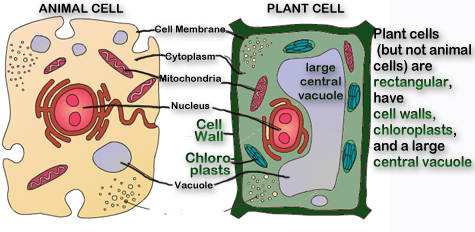What is a vacuole and its function?
1 Answer
Sep 12, 2016
Vacuoles are membrane bound cell organelles, filled with water, containing inorganic and organic molecules.
Explanation:
Vacuoles are present in all plant and fungal cells. Animal cell vacuoles are smaller in size. Most bacteria and animal cells have vacuoles.
Functions of vacuoles are :
- it maintains turgor pressure within the plant cells.
- it acts as a storage organelle.
- vacuoles in many cases contain chemicals which would otherwise react with the cytosol.
- in plants vacuoles help in maintaining the cytoplasmic pH of the cell.
- in certain fungi ( yeast ) vacuoles are involved in osmoregulation, degradative processes and storing amino acids.
- in some Cyanobacteria, vacuoles contain gases ( gas vacuoles ) that help in controlling their buoyancy.
- in animal cells vacuoles are involved in the containment, transport and disposal of some proteins and lipids to the extra cellular environment of the cell.

( )
)

